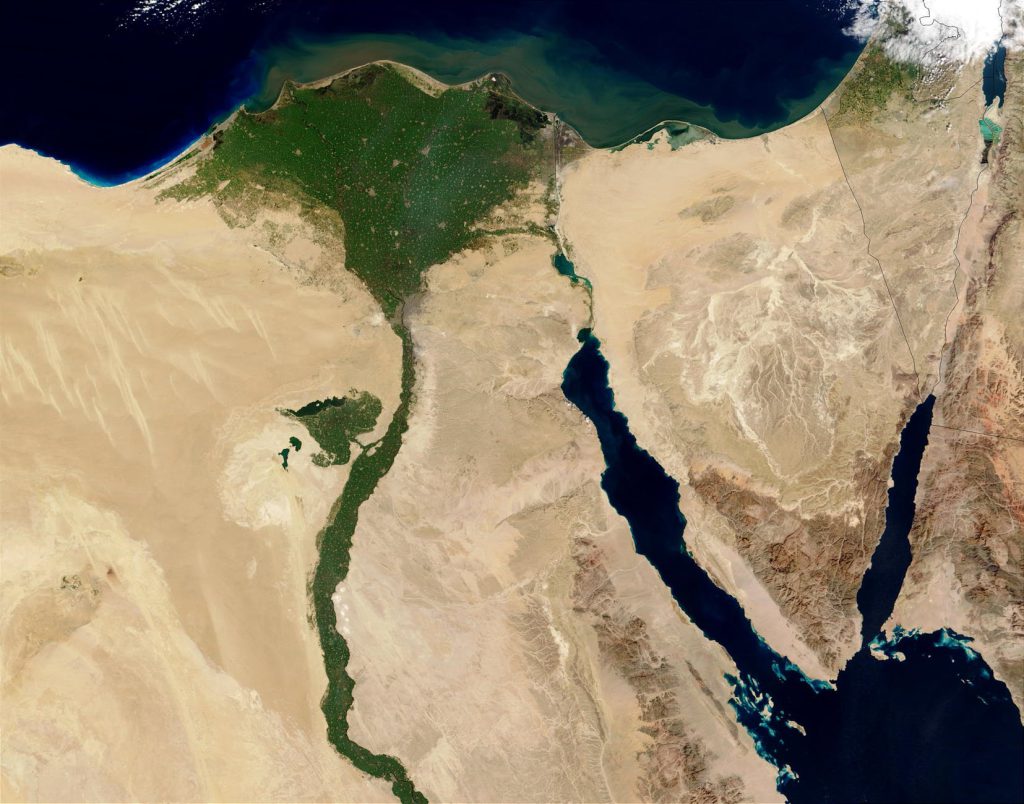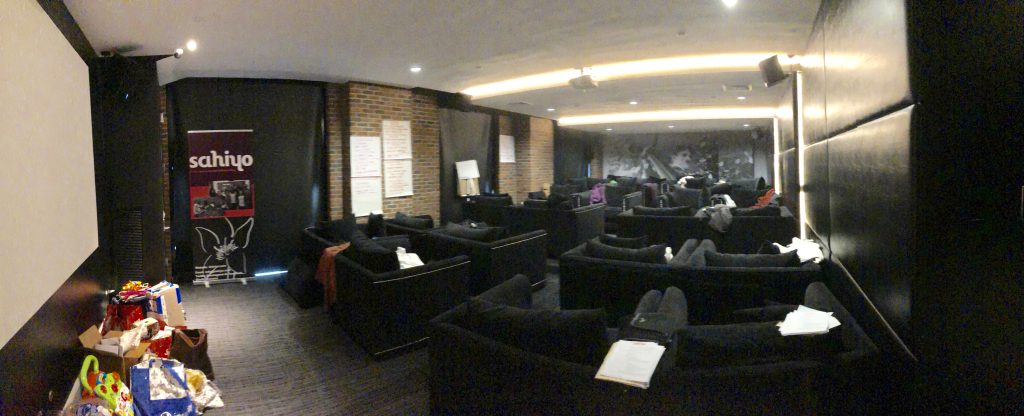On the path to healing: My journey after experiencing female genital cutting

By Anonymous Country of Residence: United States Every woman that has been cut has a story to tell. I tell my story not to offer a universal account of female genital cutting (FGC), but one that is specific to me. At a young age, I underwent Type II female genital cutting, known specifically as “taharah” (purification) within the Egyptian community, in which only part of the clitoral hood was removed and partial removal of the labia minora/majora. The taharah took place in Cairo, Egypt, while visiting relatives. This was the second time I visited my parent’s homeland. My parents were unaware, or at least this is what I’d like to believe, of what had occurred, as my sister was in a coma at the time and her prognosis was poor. They agreed that I travel to their homeland with my auntie to avoid the negative effects of witnessing what my sister was going through. My aunties had convinced me that this was a rite of passage, and what I was about to embark on would make me a “woman.” One week after arriving in Cairo, my auntie took me to a medical office where a doctor performed the surgery. She remained in the room while I underwent FGC, while my other auntie waited by the phone to hear the “good news.” I have no recollection of the surgery, as I was under anesthesia. However, I awoke to excruciating pain that would last for weeks. I remember my family members visiting to celebrate—bearing money and gifts. Upon returning home my parents realized that something was different about me. Already small-framed, I had lost ten pounds. I notified them of what occurred, and I remember them speaking with my aunties. However, the details of the discussion were unknown to me. In 2001, while taking a women’s psychology course, I learned that FGC was considered a human rights violation. Students in the class, including those from countries where this was practiced, were surprised and “disgusted” that FGC continued to be practiced. I was taken aback, as I had assumed this was a custom that many practiced. I began opening up to female friends from similar and varying backgrounds. I quickly discovered I was alone in having had it done to me. I started looking into the practice of FGC and found that there were many factors contributing to the perpetuation of FGC. Some linked it to geographical location, religion, customs, sexuality, marriageability and education. I realized this was a complicated custom that could not simply be thought of as being continued by “ignorant” people. In fact, much of my family are college educated, wealthy, and progressive in terms of religion, and advocate for the rights of women. However, the reasons given for its continuation had been rationalized by them and somehow given cultural significance. I needed answers, and began a long journey that would ultimately lead to my decision to become a social worker, and work with women who have also been cut. Mapping the Healing Journey I was left feeling extremely confused, particularly as most of my family had decided to discontinue the practice due to religious reasons (stating that FGC is “haram” or a sin, and is not a “sunnah” or religious obligation. I searched for answers—or perhaps a place where I would feel accepted and learn to accept myself. I immediately reached out to gynecologists, gender violence organizations, and social workers. Much to my dismay, all were unaware of the FGC practice. Gynecologists stared blankly at my genitals stating, “At first glance, it looks intact.” However, they were unsure the extent of the “damage” done. Gender violence organizations stated that they dealt with different forms of gender violence. “This isn’t something we specialize in,” I was told. They referred me to organizations that had more familiarity. However, they were located overseas. Social workers were unfamiliar with the practice but verbalized their strong beliefs about it. They reacted with words such as “disgusting,” “barbaric,” and “horrific.” They “encouraged” and “empowered” me to advocate for change against the oppressive practice that they assumed was justified by Islam and patriarchal oppression. They also questioned the reasons that parents would allow for such a thing to happen to their little girl. This was extremely difficult to hear given my close relationship with my parents. I walked away feeling judged, ashamed, and defective. For the first time, I began to experience symptoms of depression, which led me to become more embarrassed and secretive about what had occurred. Approximately eight years later, while reading a newspaper article, I came across the name of a Sudanese woman who started a grassroots organization for women who have been cut. The only experience I knew was one in which providers gawked at me when I told them what had occurred. I reached out to this woman, and she invited me to dinner to speak on a more personal level. Upon arriving to the restaurant, I was greeted with a warm smile. For the first hour of our meeting, she did not bring up the conversation of FGC. Surprised, I inquired, “So are we going to talk about… you know.” She replied, “When you’re ready, I am here to listen.” For the first time in a long time, I felt acknowledged, understood, accepted, and supported. We all begin our journey of healing somewhere. I am delighted to be a part of the Sahiyo team—and truly look forward to being a part of the healing process for others.
My experience at the Sahiyo U.S. Activist Retreat made me reflect on my khatna

By Anonymous Country of Residence: United States Age: 45 years old I often wondered what the two women closest to me thought about khatna. I wondered because I never really talked with my sister or my mom about it. Well, we talked, but not with much purpose. I thought they were against it, just like me. I told them that I was going to a Sahiyo Activist Retreat where I would meet other Bohri women who are against khatna, otherwise known as female genital cutting. They said okay. At the retreat, I realized that before I advocate publicly, I needed to process my own situation privately. I had khatna performed on me when I was young. I have not talked much about it. My story is much like most. I was probably under 10 years old at the time. Seems like most remember it being done when they were seven. Perhaps that was also the age when it was done to me. I was playing outside with a friend. I’m not sure what we were playing, but it seemed like a normal day and I was doing something perfectly normal. An aunt called out and said we were going somewhere. Was I to go get ice cream? I remember not wanting to leave my playmate and crying. I was taken to a relative’s home not too far from where we lived. It’s been decades, but the memory is vivid. We walked up the stairs. There were two women at the house. One held my hand. The other pulled down my panties. I remember crying. It drowned out what was happening to me. A sharp pain. Blood. Blade. That’s what I remember. I don’t remember how I got home. For the next few days, I remember the pain. I could not walk properly. I was sore. I walked with my legs apart, afraid of scraping the area that hurt. Time moved on. And I suppressed my memory of what happened. Years later, we heard of an African woman talking about FGM in the news. We all were outraged. A cousin told me that what happened to us when we were young was FGM. What? I was surprised. And somewhat glad. Because I was able to finally understand what happened when I was younger. Khatna was FGM. It was like solving a mystery of my life. Life went on. I became sexually active and curious. Sex hurt and orgasm was hard. I asked my doctors about it. Most of them did not know. I asked my gynecologist to check me out. They said they saw a nick, but nothing much. Nothing much. I often wonder if it is in my head if the pain I feel is because of something else. The pain is sharp. And, when certain parts are touched, it is unforgiving. There is so much silence around khatna that there is not a good understanding of the harm to women. I do not know if I am the only one, or if there are others who feel this way. Are there others like me who are suffering from khatna decades later? Are there others like me who can’t have healthy sexual relationships with their husbands? Are there others like me suffering in silence? After coming back from the retreat, I talked to my mom about my experience with khatna. She was surprised to know that it had impacted me long-term. I was surprised to learn that she was not impacted by it at all. I also talked to my sister. She said that she blindly follows the Bohri teachings and is neutral on the issue. And, like my mom, it has not impacted her long- term. I thought my sister would automatically be against it. But I was wrong. Next day, I recapped the story to my husband, who does not share my religion. While he was sympathetic, his anger turned into islamophobic rhetoric and a focus on my “crazy” culture. There are so many “crazy” cultures, and perhaps mine is another use case for patriarchy. I don’t hate my culture, the people who performed khatna on me, or the people who defend the practice. I want the judgment to stop. I want the fear to stop. I want to create a safe place for conversation and understanding. I know there is work to do to change attitudes about khatna. I learned that the work is much closer to home than I thought.
